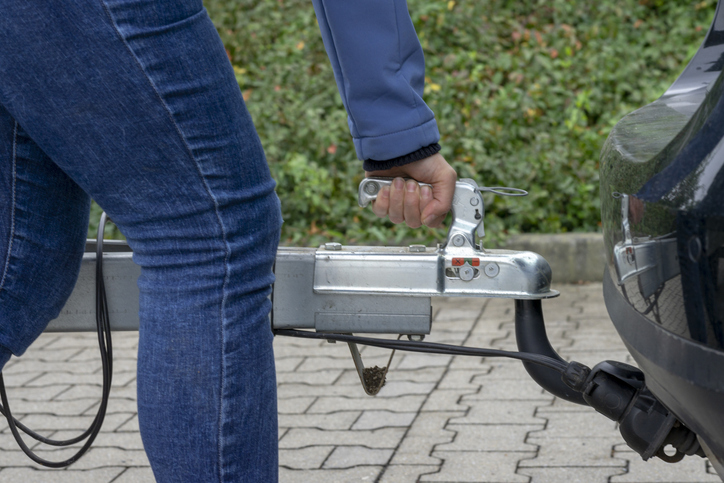Mackay Insurance Blog
Trailer Insurance: Year-Round Protection for Your Travel Trailer

Have you ever heard of “insurance potholes?” As their name implies, insurance potholes are unexpected coverage gaps that arise when you least expect them.
In the case of a travel trailer, camper or recreational vehicle, insurance potholes in your regular homeowners or auto insurance policy often aren’t noticed until it is too late.
You make a call to your insurer because your trailer has become damaged, destroyed, stolen or vandalized, only to be told you have no insurance coverage or only minimal coverage for such issues.
What now? What can you do? The answer is often, sadly, “not much.” We don’t want this to happen to you! This is why Mackay Insurance offers flexible, personalized coverage for these special types of non-motorized wheeled vehicles.
What Is Trailer Insurance?
Trailer insurance is a product specifically designed to cover a vehicle that is not really a vehicle – one that has wheels but doesn’t have a motor.
The exact configuration of what you are towing can vary – you may have a small pop-up camper, a large fifth-wheel trailer, a teardrop sleeper camper or some variation thereof.
As long as it has wheels but no motor and is designed to be towed, not steered, trailer insurance is the right policy to protect what you own.
What Types of Trailers Does Trailer Insurance Protect?
As we just outlined, trailer insurance is designed to protect wheeled vehicles that lack motors.
More specifically, these are the major categories of trailers that trailer insurance is designed to cover:
-
Fifth-wheel campers
-
Tent campers
-
Pop-up campers
-
Truck campers
-
Travel trailers
When Do You Need Trailer Insurance?
Depending on the details of your personal homeowners insurance and auto insurance, you may actually have some amount of coverage for these non-motorized, wheeled, recreational vehicles already.
But then again, you may not.
Before taking out a separate trailer insurance policy, be sure to talk with your Mackay broker and review what existing coverage you already have to see what is and isn’t covered.
What Is Included in a Trailer Insurance Policy?
Like other insurance products, trailer insurance can be personalized to a degree. This means you have flexibility when it comes to options like your deductible, coverage levels, types of coverage, seasonal coverage, etc.
These are the typical categories of coverage that trailer insurance is able to provide:
-
Emergency roadside assistance
-
Damage, destruction or theft of the trailer
-
Damage, destruction or theft of trailer contents (including perishables like food)
-
Collision coverage
-
Water damage coverage
-
Debris damage coverage
-
Lock replacement coverage
-
Injury to people or pets
-
Extended warranty for parts or appliances
In addition, there are special riders available to cover less typical needs.
How Much Trailer Insurance Do You Need?
This is where you will want to look closely at any existing coverage you may have through your homeowners insurance or auto insurance policy.
For example, your homeowners insurance may offer coverage for damage, destruction or theft of some of the contents of your travel trailer. Your auto insurance may cover liability issues when you are on the road with the trailer hitched behind your vehicle.
But the only way to know for sure is to read the fine print and review policy details with your Mackay broker.
Whatever is not covered under any existing insurance policies you already have is what trailer insurance is designed for.
Here, as with other insurance policies, you will have a deductible. The deductible is designed to give you more control over your premium costs, but you don’t want to choose a higher deductible than your finances can comfortably accommodate.
So take a look at the full replacement value of your trailer, minus what existing insurance provides coverage for, minus any amount (if applicable) you can afford to pay out of pocket to fix or replace your trailer. That is the amount of coverage you need.
Should You Rely on Your Homeowners or Auto Policy?
One thing we always tell our clients here at Mackay Insurance is that sometimes purchasing more insurance is actually less expensive in the long run!
For example, let’s say your homeowners and auto insurance policies do provide some level of coverage for your trailer as well. So you assume you don’t need trailer insurance, but then something happens.
Now you are in the stressful position of having to make a claim on your existing homeowners insurance or auto insurance policies if something happens with your travel trailer.
These types of major insurance policies tend to be more expensive in every way, including the hike in premiums you are likely to face after making even a minor claim.
This is why we say that, often, it can be a safer bet for your finances to simply let a separate trailer insurance policy handle any claims you may need to make to repair or replace any aspect of your trailer.
How Much Does Trailer Insurance Cost?
As with other types of insurance policies, the cost of your trailer insurance will be based on the value of your trailer and its contents.
Let’s take a very general example just so you can get a sense of how this might work.
For every $10,000 of value, you can expect to add another $15 or so to your monthly premiums. So for a very basic trailer worth $10,000, your monthly premium would likely be around $15. For a trailer worth $20,000, your monthly premium would be around $30 per month, and so forth.
Do You Own a Travel Trailer or RV?
Mackay Insurance now provides a special type of insurance policy to ensure your travel trailer is protected.
Get in Touch
Contact us online or give us a call at 1-888-853-5552.
